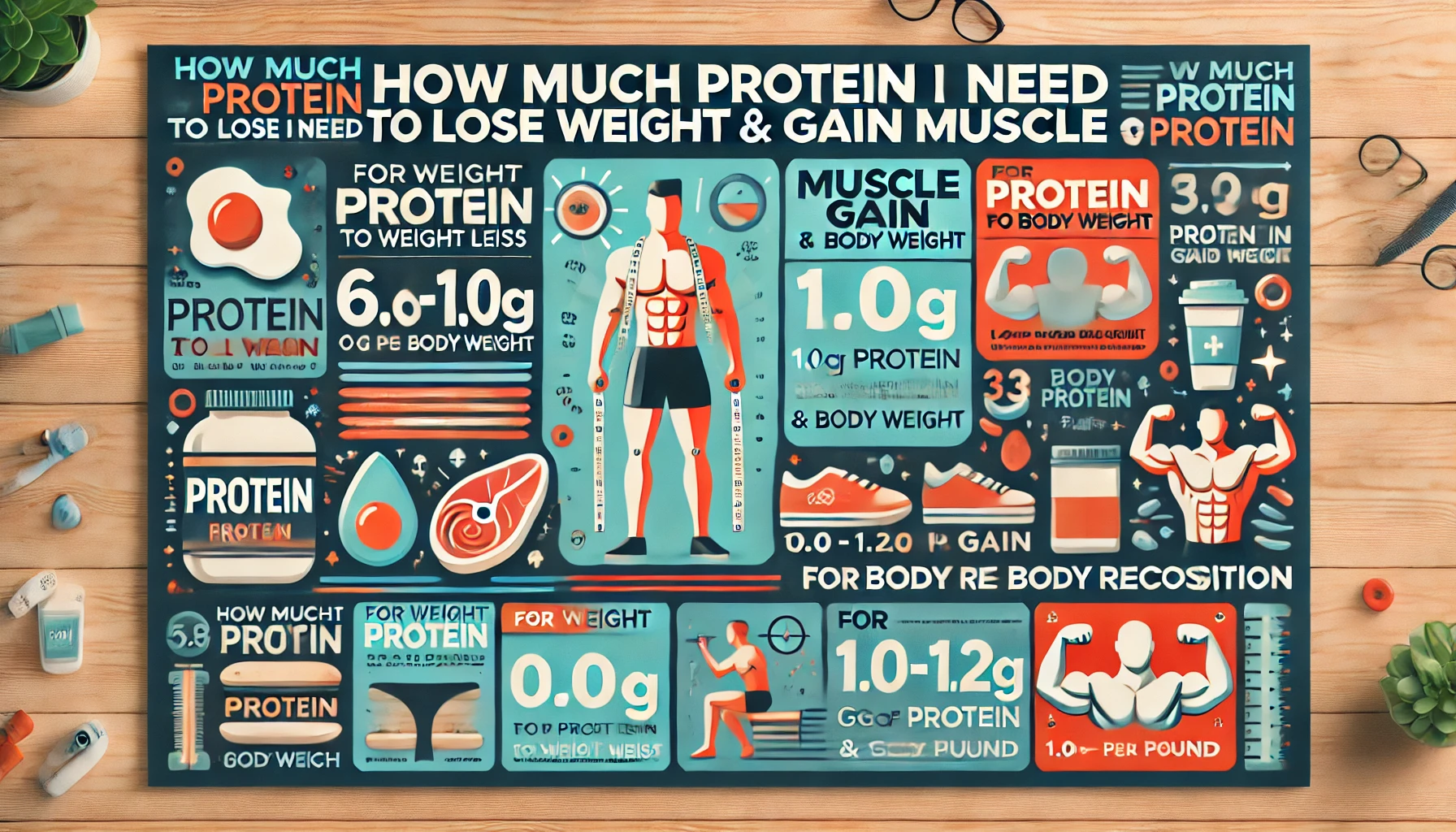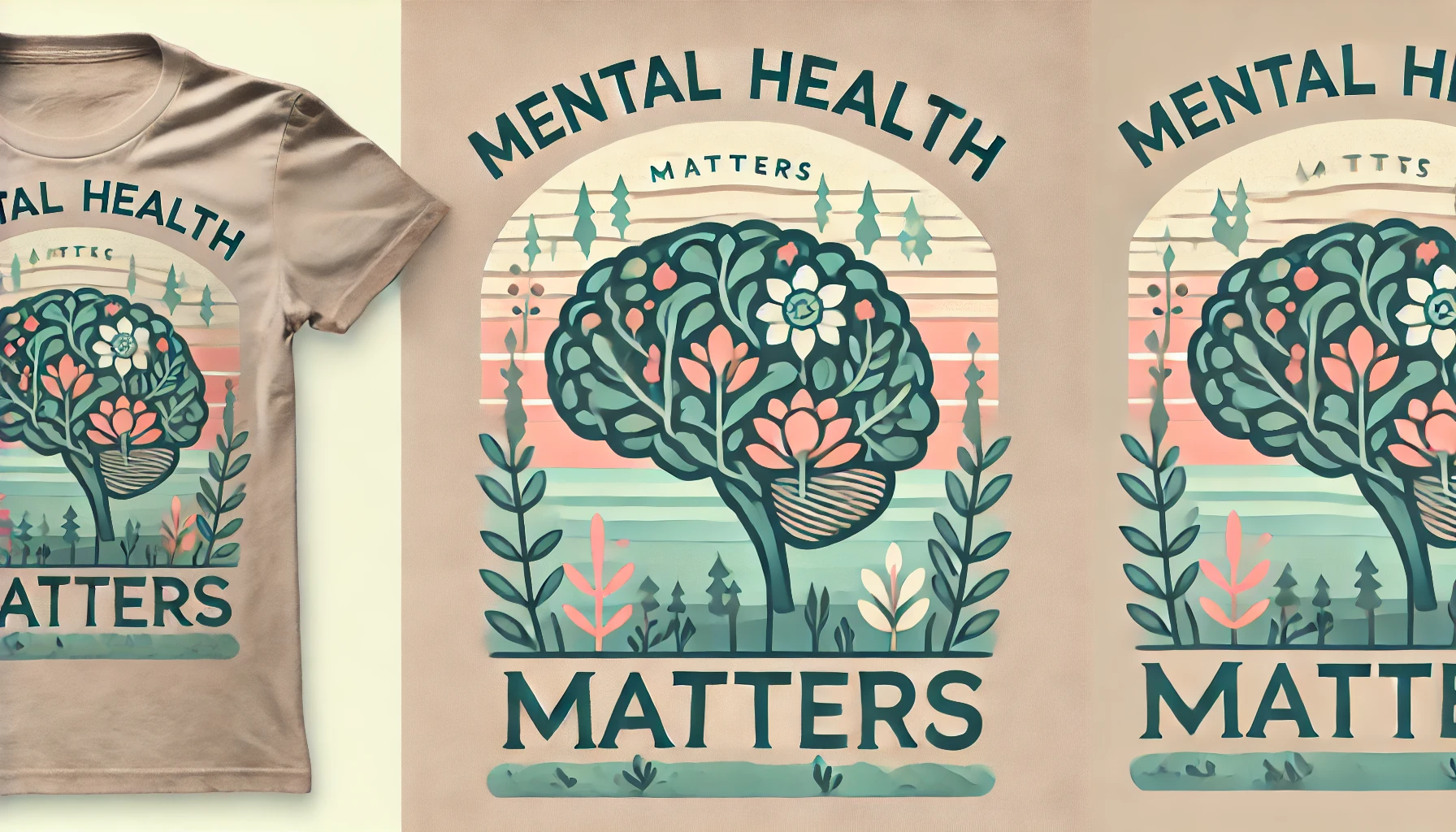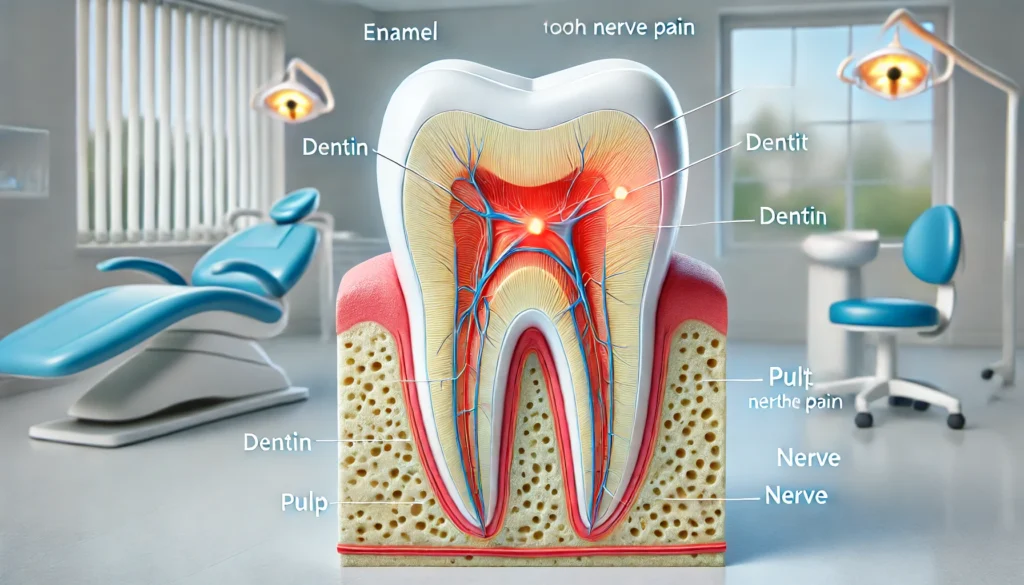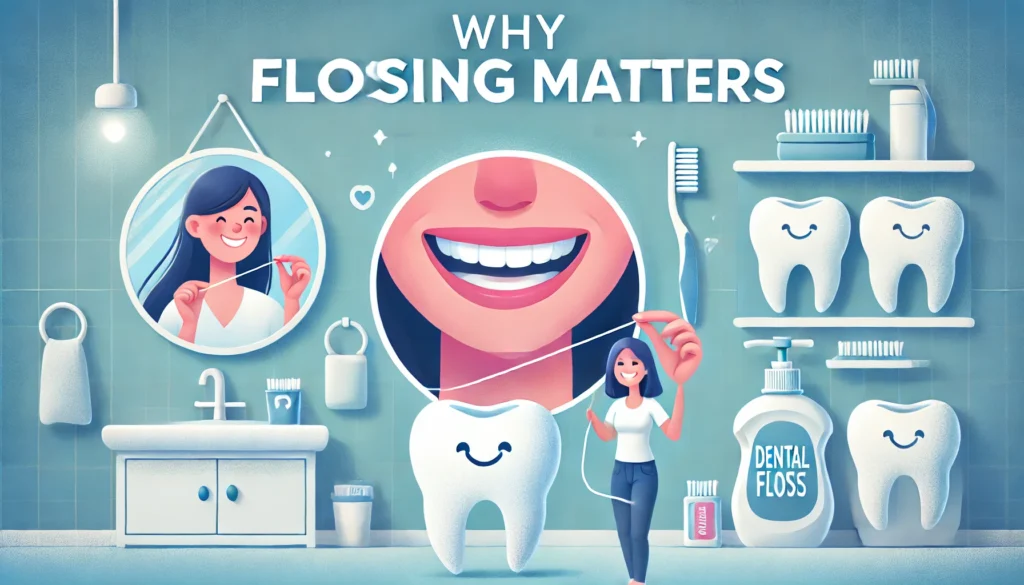Protein plays a crucial role in weight loss and muscle building. Whether you’re trying to shed extra pounds, gain lean muscle, or both, getting the right amount of protein can make a huge difference. But how much protein do you really need? This guide will break it down for you.
Why Is Protein Important for Weight Loss and Muscle Growth?
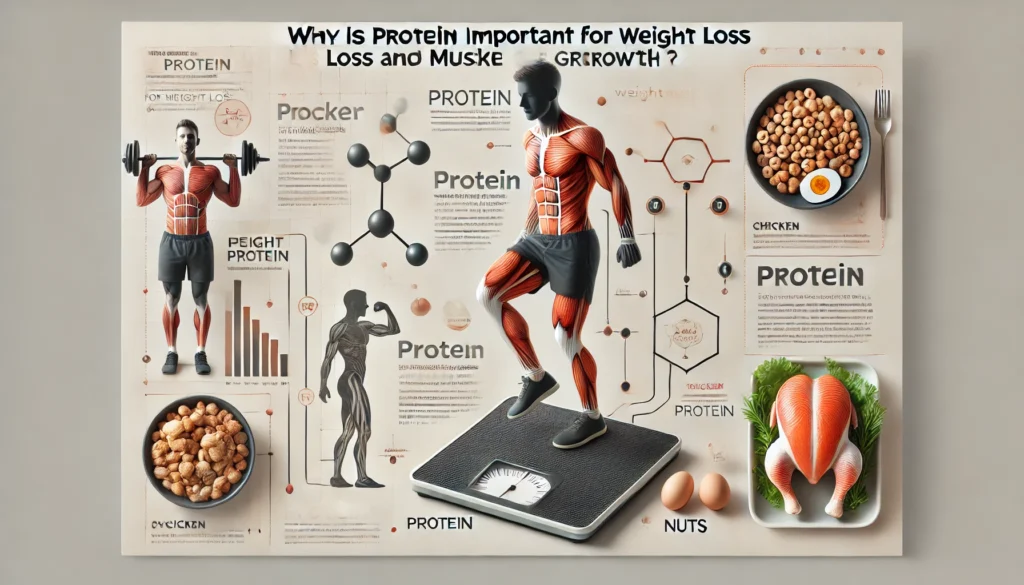
Protein is an essential macronutrient that supports various bodily functions, especially when it comes to:
✔ Boosting metabolism – Protein has a high thermic effect, meaning your body burns more calories digesting it compared to fats and carbs.
✔ Preserving muscle mass – When losing weight, protein helps prevent muscle loss, ensuring you burn fat instead of muscle.
✔ Enhancing muscle repair and growth – After workouts, your muscles need protein to repair and grow stronger.
✔ Keeping you full – Protein helps control hunger and cravings, making it easier to stick to a calorie deficit for weight loss.
How Much Protein Do You Need?
Your protein needs depend on factors like your weight, activity level, and fitness goals.
1. Protein for Weight Loss
If your goal is to lose weight while preserving muscle, you should consume around:
🔹 0.6 – 1.0 grams of protein per pound (1.3 – 2.2 grams per kg) of body weight
For example:
✅ A person weighing 150 lbs (68 kg) should aim for 90 – 150g of protein per day.
✅ A person weighing 200 lbs (90 kg) should aim for 120 – 200g of protein per day.
Higher protein intake helps keep you full, reduces cravings, and ensures your body burns fat instead of muscle.
2. Protein for Muscle Gain
If you’re trying to build muscle, your protein intake should be slightly higher:
🔹 1.0 – 1.2 grams of protein per pound (2.2 – 2.6 grams per kg) of body weight
For example:
✅ A 150 lbs (68 kg) person should consume 150 – 180g of protein per day.
✅ A 200 lbs (90 kg) person should consume 200 – 240g of protein per day.
This ensures your muscles get enough amino acids to recover and grow after intense workouts.
3. Protein for Fat Loss and Muscle Gain (Body Recomposition)
If you want to lose fat while gaining muscle (body recomposition), stick to the middle range:
🔹 0.8 – 1.2 grams per pound (1.8 – 2.6 grams per kg) of body weight
This range allows you to maintain muscle while losing fat efficiently.
Best Protein Sources for Weight Loss and Muscle Gain
To maximize your results, focus on high-quality protein sources:
🥩 Lean Meats – Chicken breast, turkey, lean beef, fish
🥚 Eggs & Dairy – Eggs, Greek yogurt, cottage cheese
🌱 Plant-Based Options – Lentils, beans, quinoa, tofu, tempeh
💪 Protein Supplements – Whey protein, casein, plant-based protein powders
A mix of these sources ensures you get all essential amino acids for muscle growth and recovery.
How to Distribute Protein Throughout the Day
For best results, spread your protein intake across your meals:
✅ Breakfast: Scrambled eggs with whole-grain toast (30g protein)
✅ Lunch: Grilled chicken salad with quinoa (40g protein)
✅ Snack: Greek yogurt with almonds (25g protein)
✅ Dinner: Baked salmon with vegetables (40g protein)
✅ Post-Workout: Whey protein shake (30g protein)
Eating protein evenly throughout the day improves absorption and muscle recovery.
Also Read: Adaptogens And Nootropics – Natural Solutions for Stress and Cognitive Enhancement!
Can You Eat Too Much Protein?
Yes, excessive protein intake can lead to:
🚫 Digestive issues – Bloating, constipation, or diarrhea
🚫 Kidney strain – In people with existing kidney disease
🚫 Excess calories – Too much protein can still contribute to weight gain if you consume more calories than you burn
Aim to balance your diet with carbs and healthy fats while staying within your daily calorie goals.
FAQs
1. Can I gain muscle with a low-protein diet?
No, protein is essential for muscle growth and repair. Without enough protein, your body lacks the necessary building blocks to develop muscle, even if you work out regularly.
2. Does the timing of protein intake matter for muscle growth?
Yes, consuming protein before and after workouts helps muscle recovery and growth. Spreading protein intake throughout the day also improves absorption and utilization.
3. What happens if I eat too much protein while trying to lose weight?
Excess protein can turn into stored fat if consumed beyond your calorie needs. Balance protein intake with healthy fats and carbohydrates for effective weight loss.
4. Can I lose weight and gain muscle without eating animal protein?
Yes! Plant-based proteins like lentils, beans, tofu, tempeh, quinoa, and nuts can provide enough protein for muscle growth and fat loss when consumed in the right amounts.
5. How can I get enough protein without using supplements?
You can meet your protein needs with whole foods like lean meats, eggs, dairy, nuts, seeds, and legumes. However, protein powders can be convenient if you’re struggling to reach your daily target.
6. Is protein more important than calories for weight loss?
Both matter! A calorie deficit is needed for weight loss, but high protein intake helps preserve muscle mass and keeps you feeling full, making it easier to lose fat.
7. What is the best protein source for muscle gain?
Complete proteins like chicken, fish, eggs, dairy, and whey protein are excellent choices. If you’re plant-based, combine foods like rice and beans or tofu and quinoa to get all essential amino acids.
8. Can I build muscle with protein alone, without exercise?
No, protein supports muscle repair, but strength training is required to stimulate muscle growth. A high-protein diet combined with resistance training gives the best results.
Final Thoughts: Finding the Right Protein Balance
To lose weight, aim for 0.6 – 1.0g of protein per pound of body weight. If your goal is to build muscle, increase it to 1.0 – 1.2g per pound. For body recomposition (losing fat while gaining muscle), stick to 0.8 – 1.2g per pound. Combining the right protein intake with a balanced diet and regular strength training will help you achieve your fitness goals effectively.
Related Post
- Www.Healthsciences Forum .Com – The Ultimate Hub for Healthcare Insights!
- HealthSciencesForumCom Team – Meet the Leaders in Wellness & Medical Insights!
- Hip Pain – Causes, Symptoms, and Effective Treatments!
- Teeth Cleanings – A Complete Overview!
- How Much Protein do I need to Lose Weight & Gain Muscle – A Complete Overview!
